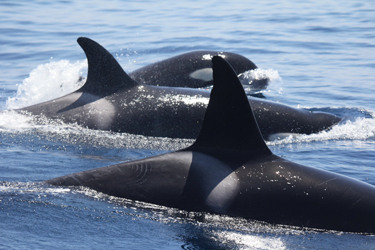Organochlorine (OC) pesticides and the more persistent polychlorinated biphenyls (PCBs) have well-established dose-dependent toxicities to birds, fish and mammals in experimental studies, but the actual impact of OC pollutants on European marine top predators remains unknown. Here we show that several cetacean species have very high mean blubber PCB concentrations likely to cause population declines and suppress population recovery. In a large pan-European meta-analysis of stranded or biopsied cetaceans, three out of four species:- striped dolphins, bottlenose dolphins and killer whales had mean PCB levels that markedly exceeded all known marine mammal PCB toxicity thresholds. Some locations (e.g. western Mediterranean Sea, south-west Iberian Peninsula) are global PCB "hotspots" for marine mammals. Blubber PCB concentrations initially declined following a mid-1980s EU ban, but have since stabilised in UK harbour porpoises and in the western Mediterranean Sea. Despite regulations and mitigation measures to reduce PCB pollution, their biomagnification in marine food webs continues to cause severe impacts among cetacean top predators in European seas.
informacion[at]ebd.csic.es Jepson et al (2016) PCB pollution continues to impact populations of orcas and other dolphins in European waters. Sci Rep 6, 18573 doi:10.1038/srep18573


 Las altas temperaturas están provocando que las lagunas y las marismas de Doñana pierdan agua rápidamente
Las altas temperaturas están provocando que las lagunas y las marismas de Doñana pierdan agua rápidamente




